
Bethany Brookshire
Bethany Brookshire was the staff writer at Science News for Students from 2013 to 2021. She has a B.S. in biology and a B.A. in philosophy from The College of William and Mary, and a Ph.D. in physiology and pharmacology from Wake Forest University School of Medicine. She is also a host on the podcast Science for the People, and a 2019-2020 MIT Knight Science Journalism Fellow.

Trustworthy journalism comes at a price.
Scientists and journalists share a core belief in questioning, observing and verifying to reach the truth. Science News reports on crucial research and discovery across science disciplines. We need your financial support to make it happen – every contribution makes a difference.
All Stories by Bethany Brookshire
-
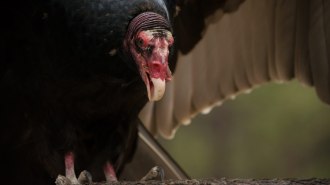 Animals
AnimalsFewer scavengers could mean more zoonotic disease
Scavenger populations are decreasing, a new study shows. That could put human health at risk.
-
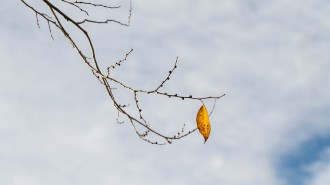 Plants
PlantsA leaf’s geometry determines whether it falls far from its tree
Shape and symmetry help determine where a leaf lands — and if the tree it came from can recoup the leaf’s carbon as it decomposes.
-
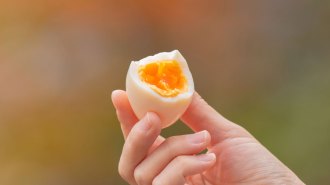 Materials Science
Materials ScienceThe best way to cook an egg — in 32 minutes
It’s hard to cook both the white and the yolk of the egg to the right temperature. Scientists have found a new method, called periodic cooking.
-
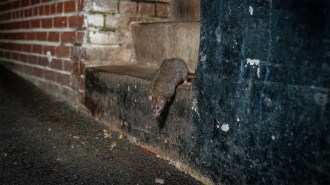 Animals
AnimalsHotter cities? Here come the rats
Well, rats. A study of 16 cities shows that higher ambient temperatures and loss of green space are associated with increasing rodent complaints.
-
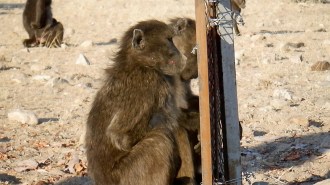 Animals
AnimalsWild baboons don’t recognize themselves in a mirror
In a lab test, chimps and orangutans can recognize their own reflection. But in the wild, baboons seemingly can’t do the same.
-
 Health & Medicine
Health & MedicineCan you actually die of a broken heart?
Death by heartbreak doesn't just happen in stories. In real life, severe stress can cause the sometimes-fatal takotsubo syndrome.
-
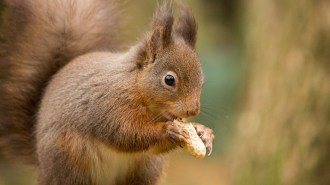 Animals
AnimalsHand-feeding squirrels accidentally changed their skulls
When fed peanuts, red squirrels in Britain developed weaker bites — showing that food supplements to threatened animals could have unintended side effects.
-
 Neuroscience
NeuroscienceBy studying the eyes, a researcher explores how the brain sorts information
Freek van Ede seeks to understand how the brain selects information to plan for the future. He’s finding clues in the tiny movements people make with their eyes.
-
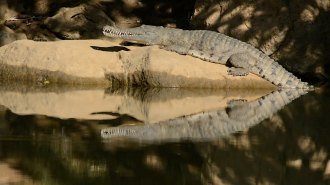 Animals
AnimalsNasty-tasting cane toads teach crocodiles a lifesaving lesson
After tasting nausea-inducing toad butts, crocodiles in Australia learned to avoid the poisonous live version. Crocodile deaths dropped by 95 percent.
-
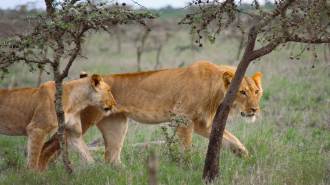 Ecosystems
EcosystemsHow an invasive ant changed a lion’s dinner menu
An invasive ant is killing off ants that defend trees from elephants. With less cover, it’s harder for lions to hunt zebras, so they hunt buffalo instead.
-
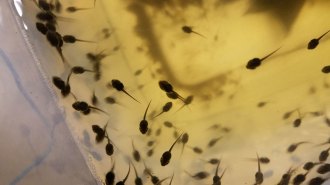 Animals
AnimalsThe right bacterial mix could help frogs take the heat
Wood frog tadpoles that receive a transplant of green frog bacteria can swim in warm waters, revealing another role for microbiomes: heat tolerance.
-
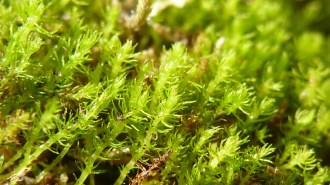 Plants
PlantsThe fastest-evolving moss in the world may not adapt to climate change
The genus Takakia has the largest number of fast-evolving genes of any moss, a study finds. But it’s losing ground in the warming Himalayas.